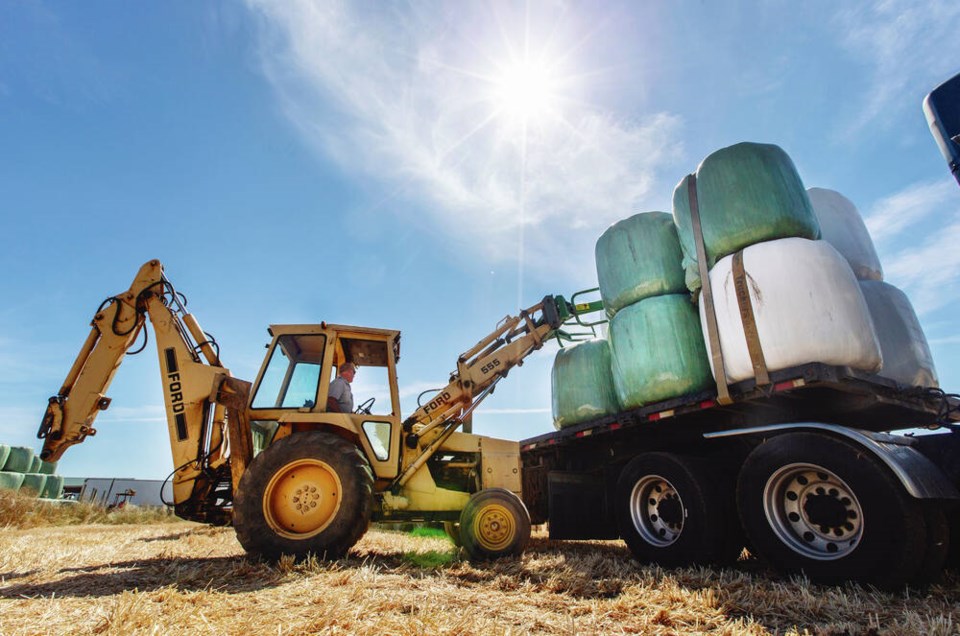A Saanichton farmer’s mission to help drought- and fire-ravaged ranchers is now well into a second month — and reaching farther afield.
Bryce Rashleigh has shipped bales as far east as Wainwright, Alta., and next week is heading to a cattle and grain farm near Acadia Valley in Saskatchewan.
“They’ve got no feed … everything has been so dry,” Rashleigh said Friday.
So far, Rashleigh has shipped 21 liner loads of hay — each holding 60 large round bales — to beef, dairy and horse farms on the Island and over the water as far north as Williams Lake and to operations around Armstrong, Kamloops and Kelowna.
Rashleigh said he isn’t profiting from the sales. He’s selling the bales for $50 each — the cost to produce them. Shipping ranges from $33 a bale to Kamloops and more than $40 to Kelowna. The farther east, the higher the shipping cost for the receiving farmer.
It’s been a lifeline to operators hit by drought and wildfires and faced with higher prices of feed and hard decisions about selling off some of their animals.
Rashleigh said Victorians have been stepping up with donations to help offset the shipping costs, with more than $55,000 donated so far.
Even Rashleigh’s fuel supplier has helped with filling a semi-truck with $2,100 worth of gas.
Nanaimo-based Penta Transport has hauled 18 loads, giving a rancher in Williams Lake free shipping, including covering $1,200 in ferry costs.
“We’re a family business and we know what some of these ranchers are going through,” said Penta Transport dispatcher Kendra Slawson, who has been a key player in organizing the shipments.
“It’s a wonderful operation to be part of.”
Slawson credits the Rashleigh family. “The respect they show our drivers is wonderful. They feed them, they offer them a place to shower … it’s been hard for our drivers during COVID.”
Rashleigh has delivered nearly half of the 3,000 big bales sitting on his farm. The pandemic slammed his biggest customer, the horse-carriage industry, and reduced demand from Island dairy and beef producers.
Farmers across the west were in a perfect storm amid a prolonged drought that has depleted water sources and hay crops, and sent grain prices higher as yields wither in the heat and pests such as grasshoppers proliferate. Wildfires also destroyed grazing lands, forcing the relocation of some herds. Some ranchers are selling out just to recover costs.
Selling off cows means ranchers won’t have any means to produce calves next year or in the future.
“We’ve got young families who are just trying to get enough feed to have their cattle survive the winter … it’s their livelihoods,” Rashleigh said from his farm, where he grows barley and wheat, and raises poultry.
Rashleigh said the trip to the Saskatchewan ranch is 1,370 kilometres from his front door. He’s personally paying the freight on one of three loads because they’ve helped each other in the past.
“Farmers help each other,” said Rashleigh.
Note to readers: This story has been corrected. A previous version misstated the amount donated so far.



